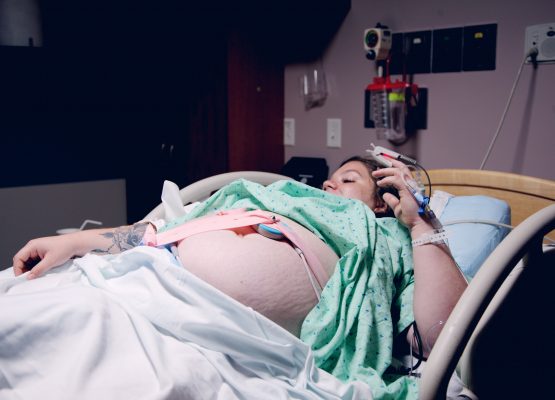It is very common for a woman to feel somewhat “lost”, frustrated or even sad sometime after birth. This is a condition often referred to as “baby blues” and according to surveys it accounts for a huge proportion of 70-80% of new mothers.
As baby blues, we mention all those negative emotions and the instability of emotions that moms often experience during postpartum. It is the mildest form of postpartum depression but it is not a psychiatric disorder.
Baby blues are the result of a combination of factors. The change of hormone levels during pregnancy and birth, the lack of sleep can cause some symptoms. The change of role from a woman to a mother and the difficulty of adapting to the new circumstances that the arrival of the baby brought can play a major role in how this mother can react in her new day to day life. Also, the birth experience itself and how each woman experiences it, and also difficulties during breastfeeding in postpartum, can fire the maternity blues symptoms.
Maternity Blues is significantly more frequent in case of cesarean section. Also a previous PPD (PostPartum Depression) is one of the important risk factors for the development of maternity blues, while natural delivery is revealed to be a protective factor.
S. Cerli et al, 2019
Especially this postnatal sadness may develop four days after birth and last up to 12 days. It can occur to a very high percentage of new mothers, up to 86%, and in some cases it is also a risk factor for postpartum depression. Specifically a 10-15% of baby blues occurrences will develop into a more serious postnatal mental disorder.
We know that this kind of syndrome is characterized by decreased mood mental and physical tiredness, anxiety, irritability, sadness, and sleep disturbances.
Of course, the symptoms you may notice are many more and vary from mother to mother.
The main symptoms ones are:
- Stress, nervousness, irritability
- Sharp exchanges of emotions
- Intense crying without a specific cause
- Enlightenment
- Physical exhaustion
- Unable to concentrate
- Mild sadness
- Insomnia (even when the baby is sleeping)
- Feeling guilty and / or impotent
To protect yourself against baby blues and postpartum depression you should first seek help and support of people around you, family, and friends. Express your needs and feelings, especially to your partner. The goal is finding together a solution to everything that concerns you.
Grief during pregnancy is a condition to be treated. Be comforted by the fact that these feelings are perfectly normal. It is also important to eat and sleep well. This helps with physical and psychological well-being during the first few weeks.
Studies have shown, that oxohexanoic acid (DHA), which helps develop the central nervous system, and omega-3 fatty acids, reduce the risk of recurrent depression. Best sources of Omega-3 fatty acids are fish (mainly salmon, tuna, sardines). Fish oil capsules are also a good way to supplement your diet. Capsules containing EPA and DHA, two essential fatty acids can also be useful in that period.
You will feel much better when you do not have high demands. Knowing that you will have difficulties and not everything will be perfect as you have dreamed. This will make it easier to deal with reality. Don’t be ashamed to get help from others in that they can rest it (eg someone else doing the housework, cooking).
In The Netherlands
In the Netherlands, the help and experience of a midwife and/or kraamzorg can make you feel better and gives you answers to your questions. Focus on you and your baby’s needs and not try to do everything together and be “perfect”. Give yourself time to adjust to new situations and get to know your baby.
In any case, you need to remember that besides a new mom, you are still a woman, so treat yourself and your body as you would do any other day. To steal a little time each day for yourself by having coffee with a friend, listening to some music, relax and getting a little out.
What is very important is that new mothers can recognize the symptoms of baby blues. Also, they need to be informed even before giving birth. They know what to expect and seek immediate help if the symptoms are too severe or persist for too long, at the risk of becoming post-partum depressed.
And remember, you are not alone.
Sources:
Physical Activity and the occurrence of postnatal depression- A Systematic Review, Medicina, Sep 2019, D. Bogucka et al
Baby Blues Syndrome as an adaptation Disorder in the Early Stages of formation of mother and child system, A.G Koshchavtsev et al, February 2007, vol 107, p. 56-58
Obstetric and Physiological risk factors associated with maternity blues, June 2019, S. Cerli et al, The journal of Maternal – Fetal & Neonatal Medicine



